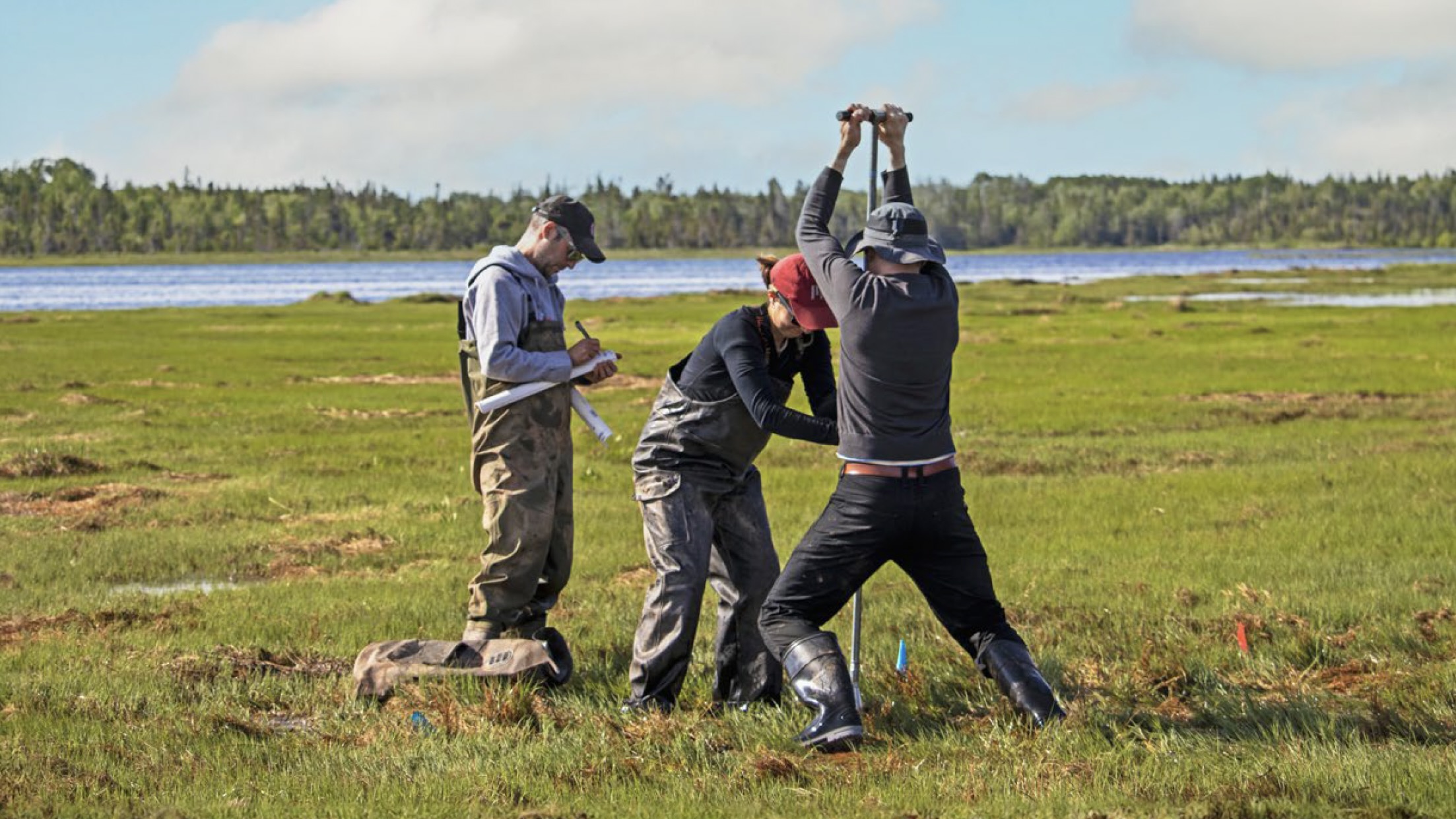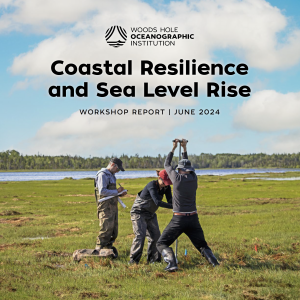Woods Hole Oceanographic Institution’s Marine Policy Center Releases Coastal Resilience and Sea Level Rise Workshop Report

Woods Hole, Mass. (Sept. 24, 2024) – Sea level rise is one of the most urgent climate threats facing society, and many low-lying islands and coastal areas are already experiencing its impacts. About 10% of the world's population, roughly 770 million people, live in coastal areas less than 5 meters above the high tide line. To support the pressing need for a collaborative approach to building resilience against sea level rise, Woods Hole Oceanographic Institution’s (WHOI) Marine Policy Center recently hosted a workshop with 29 leading specialists from science institutions in Woods Hole, as well as from organizations, like ResilientWoodsHole, coastal community members, the Commonwealth of Massachusetts, and policy experts, resulting in a comprehensive new report, “Coastal Resilience and Sea Level Rise Workshop Report.”
“Sea level rise is affecting our communities now,” said Katherine Antos, Undersecretary of Decarbonization and Resilience at the Massachusetts Executive Office of Energy and Environmental Affairs. “Massachusetts is adapting to climate change by utilizing the latest science, building the capacity of our cities and towns, and working with our academic and community partners to create innovative nature-based, workforce and economic solutions. We are honored to collaborate with leading experts and share lessons learned to advance climate resilience."
Global sea levels are rising, and the rates at which they are rising are faster within the 20th century than during any prior century over the last three millennia. This is tied to warming air and ocean temperatures, which melts ice sheets and glaciers, adding water to the ocean. In addition, warmer ocean waters themselves take up more volume due to thermal expansion. Much of the global sea level rise over the last century, due in equal parts to ocean warming and ice melting, is the result of human activity.

Global sea levels are rising, and the rates at which they are rising are faster within the 20th century than during any prior century. To support the pressing need for a collaborative approach to building resilience against sea level rise, WHOI’s Marine Policy Center recently hosted a workshop with 29 leading specialists. (Photo by; Maeve Upton/Cover Design: Eric Taylor/©Woods Hole Oceanographic Institution)
The goals of the day-long workshop in June 2024 included: (1) Relate the most relevant science on sea level rise and shoreline change to community actions (2) Discuss examples of community and state resilience plans (3) Share lessons learned from community and state resilience plans and export to other communities, and (4) Create science-based suggestions for policy and communities. The outcomes for the workshop include a list of suggestions for other communities, based on the lessons learned in Woods Hole and Massachusetts, including investing in climate tech and the blue economy to support innovative climate solutions and create economic and workforce opportunities, and supporting communities with all of the necessary tools to build resilience.
“Sea level rise is a catastrophic threat to coastal communities around the world,” said Rafe Pomerance, Senior Fellow at the Woodwell Climate Research Center, and a participant in the workshop. “An upper limit to sea level rise would bring needed attention to those communities' needs and spur leaders around the world to act to urgently reduce greenhouse gas emissions."
The new report is being released during NYC Climate Week ahead of a UN General Assembly plenary meeting on sea level rise. The meeting aims to deliver action-oriented solutions for affected States and frontline communities to provide a significant step forward for enhancing action on sea-level rise.
“The challenges are not insurmountable,” said Kilaparti Ramakrishna, Director of WHOI’s Marine Policy Center who convened the workshop. “With the right blend of science, policy, and international cooperation, we have the tools to build resilient communities, protect ecosystems, and secure a sustainable future for generations to come.”
Coastal Resilience and Sea Level Rise Workshop Report can be downloaded here.
###
About Woods Hole Oceanographic Institution
The Woods Hole Oceanographic Institution (WHOI) is a private, non-profit organization on Cape Cod, Massachusetts, dedicated to marine research, engineering, and higher education. Established in 1930, its primary mission is to understand the ocean and its interaction with the Earth as a whole, and to communicate an understanding of the ocean’s role in the changing global environment. WHOI’s pioneering discoveries stem from an ideal combination of science and engineering—one that has made it one of the most trusted and technically advanced leaders in basic and applied ocean research and exploration anywhere. WHOI is known for its multidisciplinary approach, superior ship operations, and unparalleled deep-sea robotics capabilities. We play a leading role in ocean observation and operate the most extensive suite of data-gathering platforms in the world. Top scientists, engineers, and students collaborate on more than 800 concurrent projects worldwide—both above and below the waves—pushing the boundaries of knowledge and possibility. For more information, please visit www.whoi.edu.
